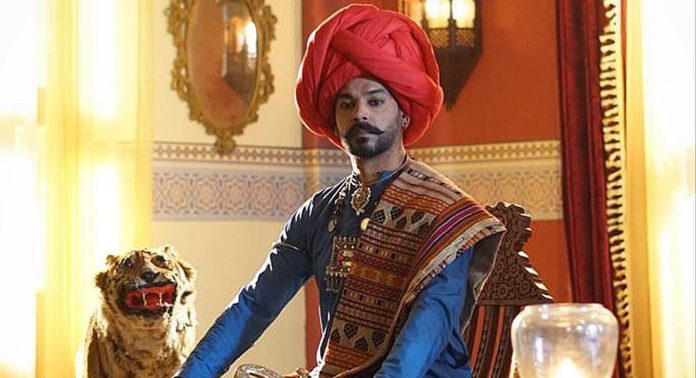Gohar Rasheed’s journey to prominence was neither simple nor immediate; he was the face behind the well-praised character of Maakha Natt in the 2022 blockbuster film The Legend of Maula Jatt. The actor is currently the talk of the town thanks to his roles in two hit shows airing on Indian television at the same time: Jindo and Jannat Se Aagay. Rasheed spoke up about his life and career in an emotional interview with Hassan Choudary on The Talk Talk Show on Express Entertainment.
Rasheed’s conflicts with his father are illustrative of the gender-blind stigma in Pakistan’s society that prevents young men and women from pursuing careers in the performing arts. If you’re set on doing this, my dad said, “Do it by yourself.” I won’t back you up.
Progress in Baby Steps
Rasheed claimed it was a tremendous effort to arrive in Karachi on a shoestring budget and aim for a competitive field; he even sold smokes to raise money.
“All I knew was that on I.I. Chundrigar Road in Karachi, every major news organization has its headquarters. The actor from Maula Jatt recalled, “I used to take the bus every day from Boat Basin to I.I. Chundrigar to drop my CV and showreel at every channel.”
The famous person said that his first job was very different from acting because it involved “donkey work,” or supervising technological operations on set.
He said, “I never thought I’d be an actor,” explaining that his facial scars made him feel like he didn’t have what it took to play the stereotypical hero of the day. Rasheed admitted, “I wasn’t the quintessential ‘pappu’ larka with flowing hair and fair skin,” describing the “defeatist” outlook he and many other young males have.
The actor continued by saying that young people just starting out in the entertainment industry are vulnerable to internalizing harsh judgments and rejections, but that consistency is the key despite the pervasiveness of industry stereotypes. “Don’t let other people determine who you are. You are not bound by the restrictions of others. You move forward from the realization that there is no one else like you.
Rasheed revealed that his “leap of faith” in front of the camera came when he performed in a stage adaptation of Moulin Rouge in Karachi. His superior at Style 360, Vaneeza Ahmed, was pleased with his performance, which eventually led to Wajahat Rauf, the film’s producer, giving him a small part in the movie.
Honoring the wounds
Rasheed will never forget the young fan who messaged him on Facebook to say that, like Rasheed, he too has scars on his face but that watching him on screen gave him hope that he, too, has a shot. The actor described this experience as a “changing point” that strengthened his resolve to demonstrate that anyone with skill can succeed in this industry.
Rasheed cited a variety of parts, such as “Digest Writer,” “Manmayal,” and “Rangreza,” that he hoped would launch him to overnight success but fell short. When Digest Writer got popular, I finally felt like someone knew who I was. In the past, I was only known by the name of my fictional character, Shaukat. And then I fell,” he said.
Rasheed said, “The trailer was very popular with people and then I was all proud that this was finally my moment but thank God that film flopped because if it hadn’t, it would have extremely inflated my pride.” This was in reference to his brief rise to fame with the 2017 love film Rangreza.
Hit or flop, he continued, “these are matters better left to fate,” and that realization had been a “epiphany” for him. The star also discussed his accomplishments with The Legend of Maula Jatt, saying, “I spent ten years on Maula Jatt from the genesis of the idea to the release.” Consistency is the key; back then, no one would have bet on such an expensive film’s success in a niche market.
In response to a fan who wondered whether the actor planned to get married soon, Rasheed said that he had no romantic intentions toward his co-star Kubra Khan, whom he described as his “best friend” and “family,” because not all relationships require a romantic future to be authentic.
The Jannat Se Aagay actor also addressed the Bollywood offer he turned down for Sonam Kapoor’s Neerja in 2016. “I declined because the role was of a terrorist,” he said. “Culture, art, and creativity know no borders, but you are still a representative of your nation. You should feel and act responsibly in light of the weight of that image.
Standing firm
When asked about sharing his political opinions online, Rasheed responded, “In today’s time when social media is so influential, everyone should speak up for what they believe is right.” The famous person also emphasized the need to use your platform to show solidarity for Palestine.
Rather regrettably, he continued, “most people aren’t talking about Palestine,” therefore he urged listeners to “take a stand.” Don’t worry about how your opinion will be received; the conclusion is not in your hands. It is incumbent upon you to speak up. He further criticized the media’s ‘irresponsible’ portrayal of the Palestine-Israel conflict and the proliferation of false information.
